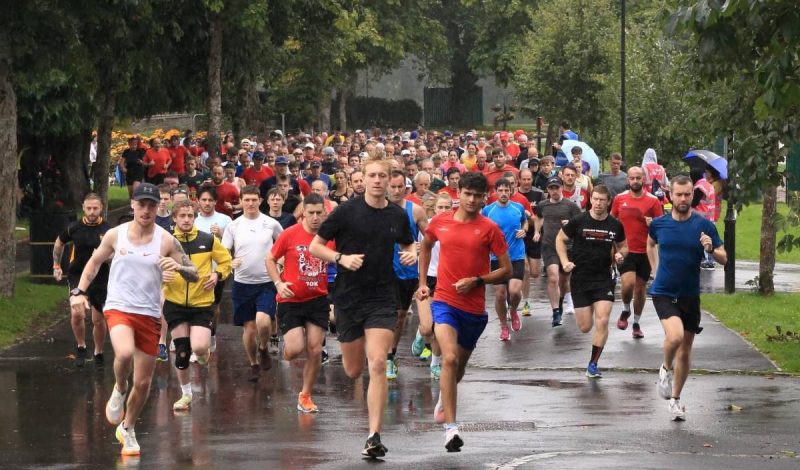Chiropractor Tom’s Marathon training
I started running in August 2022. Within a couple of weeks of starting I competed in my first half marathon. I spent 2023 competing in 3 other half marathons before signing up to the Manchester Marathon which I completed in April 2024. Throughout that time, I trained anywhere between 3 and 6 days a week, I ran between 5km and 60km per week, I took part in 46 Parkruns (Cheltenham being my favourite) and ran up Leckhampton and Cleeve Hill more time than I care to think about. However, throughout that time I learnt a lot about both running, but also, injuries as I have suffered from pulled muscles, plantar fasciitis, hip pain (on both sides), stress fractures and passing out in a race (a story for a rainy day). Here’s a synopsis of the lessons I learnt as a runner and Chiropractor…
Marathon Training Volume
What do I mean by training volume? The total work performed in a given period of time. Within running this is normally the total kilometres or miles per week. Everyone has individual needs when it first comes to running but when it comes to progressing it, we can all follow the same guidelines. Depending on how fit you are when you start running you may be able to run 5km/week, or you may be able to run 40km/week. A golden rule for progressing this is the 10% rule. This is progressing your distance per week by only 10%. For example, if you run 40km/week normally then you should only aim to run 44km next week. This not only gives you a target to slowly increase each week to build fitness, strength and resilience but if you take it at this rate should also reduce your risk of injury.
Marathon Strength Training
Something that is often neglected in running training is strength training. There are countless reasons why you should strength train when running and here I will just name a few
Injury prevention
The stronger your muscles, tendons, ligaments and bones are the lower your risk of injury and no matter how advanced you are at running, strength training should always have its place.
Running efficiency
The stronger you are, the more power you can produce. The more power you can produce, the faster you can run. You will also find your slower runs easier as you’re more efficient.
Overall health
Strength training should be a part of everyone’s life. It’s important for your musculoskeletal health as well as your heart, lungs, body composition and more. It’ll also help prevent almost any disease that you can imagine.
Aim for 1 or 2 sessions per week focussing on the legs and core specifically for running, but also include your upper body in that too. This is often the main part of training that people miss but at the very least can offer a different training environment to just running on roads.
Marathon Training Recovery
Recover as hard as you train. Don’t worry, I’m not going to force you to take cold showers unless you want to! There are some major factors with recovery that lots of people overlook though. The big things to focus on are:
- Sleep – aiming for 7-9 hours of good quality sleep is the most powerful recovery tool we have
- Nutrition – aim to eat a high protein diet (at least 1g of protein per kg of body weight), lots of variety, lots of plant food, limit processed food keep a focus on carbohydrates around your training.
- Training – following the same principles that I mentioned previously will allow you to recover adequately between your sessions.
- Extras that will supplement recovery are stress management, supplementation, hydration, the list goes on.
Dealing with injuries related to Marathon Training
One of the biggest things that we all have to accept is that if we are active, we WILL get injured. We can reduce our risks, prevent as much as we can, train perfectly, recover amazingly and yet sometimes we will still get injured. Small niggles are often okay to train with. We all get them; they last for a couple of sessions and then you forget about them. That absolutely fine. Any injuries that are either more painful, stopping you from running or niggling for a few weeks (or more…) are worth getting checked out.
Treatment during Marathon Training
So where does Chiropractic fit into this?
I was receiving treatment every 2 weeks throughout most of my training. I received hands-on treatment to reduce and fix both smaller niggles as well as those bigger injuries. I got a second opinion on any training mistakes I may have been making. I also got it because it made me feel better and gave me confidence in my body. The more I had confidence in it the better I could perform.
If you are struggling with anything, want a second opinion on some training or just want to feel and perform better then why not book in? Give the clinic a call on 01242 254000 to speak to reception or ask to speak to one of our expert practitioners.





